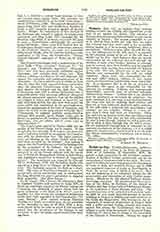

Violence (Lat. vis), an impulse from without tending to force one without any concurrence on his part to act against his choice. The stimulus or moving cause must come from without; no one can do violence to himself. The person compelled to act or to abstain from action not only does not assist this external force but resists and as far as possible strives against it: if he is merely indifferent, there is no violence. Violence cannot affect the will directly, i.e. the elicited acts of the will, since it is contrary to the essential notion of an act of the will that it should not be free. Acts however that are merely commanded by the will and exercised through the medium of some other faculty, internal or external, may be coerced, since these faculties may be impeded by violence from putting into execution the behests of the will. Not only elicited acts of the will, but likewise acts commanded by the will, are called voluntary. Since, then, acts commanded by the will may suffer violence, violence to that extent causes involuntariness and freedom from imputability. It is apparent that in so far as coercion is irresistible, the agent is not responsible for the external act resulting. Volition, and consequently imputability, proceeds from an internal principle; violence from without. Violence that is not absolute may be weakened or overcome by resistance: the more vehement it is, the more is our freedom limited. He, then, who can, by resisting, repel violence and does not, at least indirectly, desires to suffer violence. If the will yield a reluctant but nevertheless real consent, we are culpable, though in a less degree than if there had been no reluctance. Often fear and force go hand in hand, since not infrequently force begets fear, but they are not to be confounded. In what is done through violence the will is quiescent, but in what is done through fear the will is active. An act performed through fear is voluntary in the concrete, involuntary in the abstract, i.e. it is willed under the circumstances, but in itself it is not desired. [See Fear (from Moral Standpoint); Canonical Impediments (vie et metus), VII, 698a.]
ANDREW B. MEEHAN

